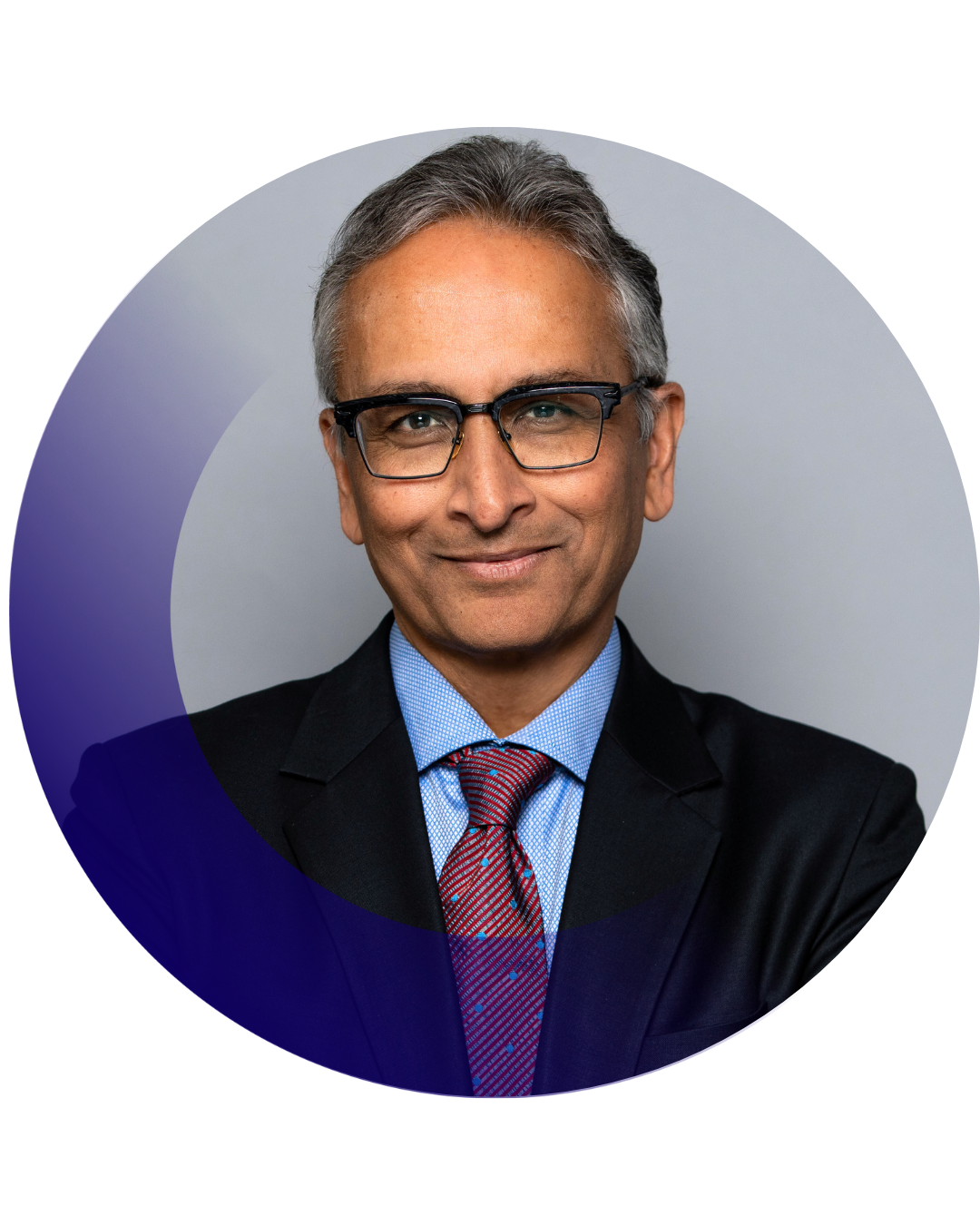ARO Innovator Award in Clinical Science
This award recognizes a body of work that constitutes a significant advance relevant to clinical practice in hearing and vestibular disorders. The topic should be related to the scientific interests of the Association as represented at the annual ARO Meeting. As the award is for a body of work, the award may be shared among investigators who have worked as a team. This award is open to all career stages.
The selection will be made in November 2024, before the 2025 Midwinter meeting.

2026 Innovator Award in Clinical Science Winner
Anil K. Lalwani, M.D.
Associate Dean for Student Research
Columbia University Vagelos College of Physicians and Surgeons
Professor of Otolaryngology-HNS and Mechanical Engineering with Tenure
Vice Chair for Research
Co-Director, Columbia Cochlear Implant Program
Department of Otolaryngology-Head & Neck Surgery
Columbia University Vagelos College of Physicians and Surgeons
Medical Director of Perioperative Services
New York Presbyterian—Columbia University Irving Medical Center
Bio:
Anil K. Lalwani, MD, is Associate Dean for Student Research, tenured Professor of Otolaryngology and Mechanical Engineering, Vice Chair for Research, and Co-Director of Columbia Cochlear Implant Program in the Department of Otolaryngology at Columbia University Vagelos College of Physicians and Surgeons.
Dr. Lalwani earned his M.D. from the University of Michigan Medical School in 1985 and subsequently completed is internship in General and Thoracic Surgery at Duke University Medical Center and his residency in Otolaryngology-Head and Neck Surgery at UCSF. Following subspecialty training in Neurotology and Skull base surgery, he served as Senior Staff Fellow at the NIDCD, NIH. In 1994, he joined the faculty at UCSF as an assistant professor and rose to the rank of Professor in 2002. In April 2003, Dr. Lalwani was recruited to NYU to serve as Mendik Foundation Professor and Chairman of the Department of Otolaryngology — a position he held until December 2009.
Doctor Lalwani’s basic research has focused on two key areas: identifying genes that are critical for hearing through the use of molecular genetic and molecular biologic methods and developing and investigating gene transfer technology for the treatment of hearing disorders. More recently, his NIH funded research has focused on the development of microneedle technology for inner ear delivery.
He is the author of 284 peer-reviewed articles, and numerous books and book chapters; his h-index is 74. He has served as the President of American Neurotology Society (2014-2015), American Auditory Society (2017-2018), New York Otological Society (2023) and Otosclerosis Study Group (2024-2025).
Submit a Nomination
CALL FOR NOMINATIONS: ARO AWARD FOR CLINICAL INNOVATION
The Association for Research in Otolaryngology will start accepting nominations for the ARO Award for Clinical Innovation on June 16, 2025.
ABOUT THE ARO AWARD FOR CLINICAL INNOVATION
This award recognizes a body of work that constitutes a significant advance relevant to clinical practice in hearing and vestibular disorders. The topic should be related to the scientific interests of the Association as represented at the annual ARO Meeting. As the award is for a body of work, the award may be shared among investigators who have worked as a team. The awardee(s) will be honored at the ARO Award Ceremony during the 2026 MidWinter Meeting in San Juan, Puerto Rico.
REMINDER: Nominees, nominators, and letter-writers are not required to be ARO members. Self-nominations are not accepted.
Please read carefully before submitting.
NOMINATION Requirements:
Nominations should include the following:
A curriculum vitae (CV or CVs for multi-investigator teams)
A nomination letter (1-2 supporting letters; letters may have multiple signatories)
Nominations are selected by the ARO Award Committee and submitted to the ARO Council for approval. A nominee’s package will be considered for up to 3 years in sequence; the package can be updated for the second and third years. Nominations submitted in previous years without meeting the new standards should be resubmitted.
